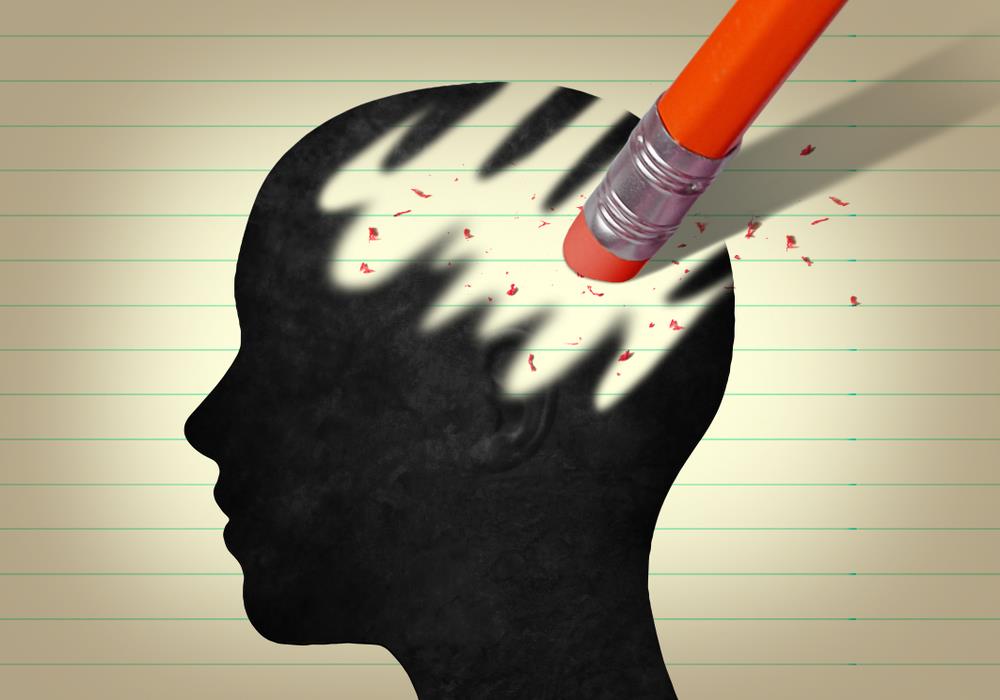Author:
George Stothart
(MENAFN- The Conversation) Our visual memory system has a phenomenally large capacity. Flick through the image gallery on your phone, or fast forward through a previously watched movie, and notice how the briefly presented images trigger memories with little or no effort on your part. Well, my colleagues and I have harnessed this passive visual memory system to develop a test that might one day be used to diagnose Alzheimer's disease.
The person being tested is fitted with an electroencephalography (EEG) cap to record their brain activity and shown a series of images of everyday objects on a computer screen. They then watch a stream of different images, periodically interspersed with one of the images they saw initially. The images are presented on the screen at a rate of three images per second (3Hz).
The pictures they were first shown appear as every fifth image. If the person remembers the image, the EEG readout shows a distinct neural response, and another one five images later, and so on. By looking at the EEG signals for activity at this specific frequency (0.6Hz), we can measure the strength of a person's memory response to previously seen images.
The beauty of this test is that it measures memory passively and objectively. People don't provide any response and don't even need to understand the task. They simply watch a series of pictures while wearing an EEG cap.
The task takes just two minutes. And because it is passive, it is ideal for using with people with cognitive impairment who can't follow complex task instructions.
By the time a person is diagnosed with Alzheimer's disease – which is the most common form of dementia – they have usually had the disease for up to 20 years . Diagnosis is clearly not occurring early enough.

Dementia is not being diagnosed early enough. Teo Tarras/Shutterstock Alzheimer's is diagnosed using a combination of reports of memory decline from the patient and their family or carers, often involving tests administered in a clinic. These tests aren't ideal because the patient's anxiety can interfere with the result. They also require the person to be able to speak and write, which makes them ineffective for some people.
We hope that our new test, called Fastball, provides a new tool that bypasses these biases and gives doctors and scientists a new way to quantify the changes that occur in memory as a consequence of the disease.
Our research, published in the journal Brain, shows that people with Alzheimer's disease show a significantly reduced memory response compared with healthy older adults. Using responses from just a single, passive, two-minute Fastball task, we could discriminate 20 Alzheimer's disease patients from 20 healthy older adult controls to an accuracy of 86%. This accuracy increases to 92% when we focus on a subset of electrodes in visual-processing areas.
We are also conducting a long-term study using this new technology in people with mild cognitive impairment. Early analyses – which are yet to be published – suggest that Fastball can pick up early memory impairment. And we hope that this passive, objective measure of memory will be able to predict which of these people will later develop Alzheimer's disease. We hope to publish our first report on the data in late 2022.
Benefits of an early diagnosis
You may wonder if anyone would want to be diagnosed before they are even aware they have Alzheimer's disease? A recent survey shows that, indeed, they would. Nearly three-quarters of the respondents said they would want to know if they had Alzheimer's disease, even if they were not yet experiencing symptoms.
Read more: The time is right to focus on pre-clinical dementia
The earlier people know they are at risk of developing Alzheimer's, the sooner they can make simple lifestyle changes, such as exercising more and cutting back on alcohol, that can slow the progress of the disease.
And, in July 2021, the US Food and Drug Administration approved Aduhelm , the first drug to treat Alzheimer's disease. The effectiveness of Aduhelm, and future drugs, may be aided by an earlier and more accurate diagnosis of Alzheimer's disease. The effect of Aduhelm on cognitive function is not as clear as its effect on the physical hallmarks of Alzheimer's disease in the brain. More sensitive markers of cognition, such as Fastball, may be better able to detect the effect a drug may be having on the brain's function.

MENAFN20092021000199003603ID1102831791
Legal Disclaimer:
MENAFN provides the information “as is” without warranty of any kind. We do not accept any responsibility or liability for the accuracy, content, images, videos, licenses, completeness, legality, or reliability of the information contained in this article. If you have any complaints or copyright issues related to this article, kindly contact the provider above.